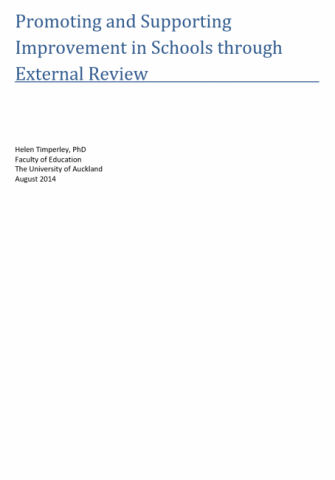Improving Guidance and Counselling for Students in Secondary Schools
Published: 10 Dec 2013
The Prime Minister’s Youth Mental Health Project aims to improve the mental health of young people aged 12 to 19 years. One initiative of this project is a national evaluation of the current provision of guidance and counselling in schools.
The Education Review Office (ERO) evaluated how well 44 schools and five wharekura provided guidance and counselling for students.
- Audience:
- Education
- Parents
- Schools
- Content type:
- Research
- Topics:
- Guidance
- Counselling
- Secondary
- Mental health













